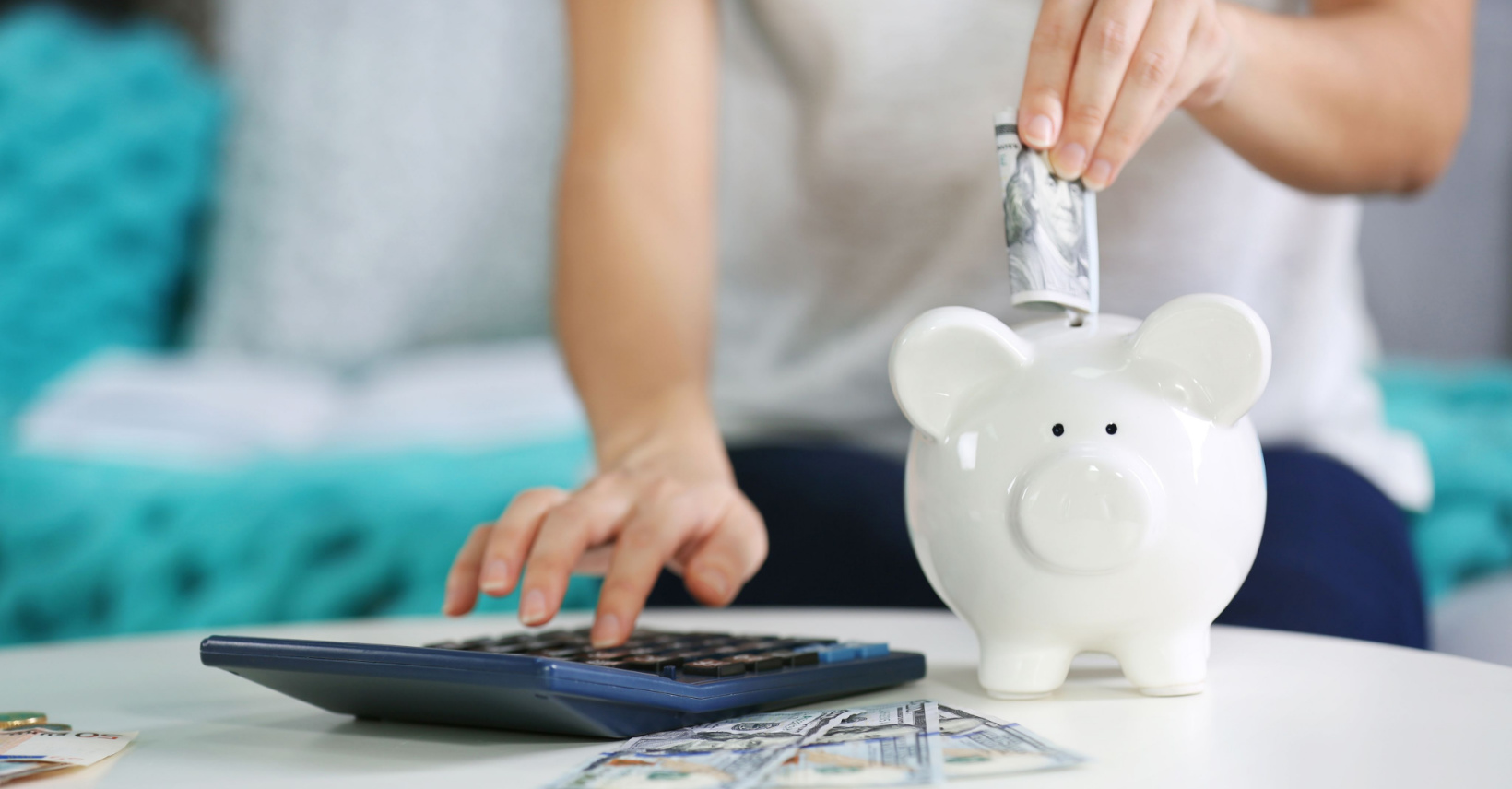As many of our readers probably already know, getting control of one’s finances can be extremely difficult. If you feel out of control regarding your financial situation, you may feel like there’s nothing you can do to improve it.
However, whether you’re stressed about your credit score, retirement fund, credit card debt, or emergency savings, small steps can significantly improve your finances and eliminate some of your worries. So, if you want to learn how to take small actions to improve your wallet, keep reading below.
Set Up Auto-Save for Different Accounts
If you have trouble saving money, automating it could be the key to solving your problems. Most direct deposit systems allow you to take money (whether it be a percentage of your check or an actual dollar amount) and distribute it to different accounts when you get paid.
This method helps you to save money automatically and painlessly since you technically aren’t even seeing it in your paycheck. If you automate your account to take out only small amounts from your paycheck, you probably won’t even miss it, and you’ll be building your savings at the same time.
Automate Investing
Similar to the last tip, automating investments can be another excellent idea for accumulating wealth. Don’t let your money just sit in an account and do nothing. If you want to improve your investments, you can set up automatic withdrawals to your investment account, whether that be through an easy investment app or an account where you manually invest in individual stocks.
Again, that automatic withdrawal and deposit will make it easier to invest your money fairly painlessly. However, this idea is not without downfalls. You’ll want to be sure to put your money into low-risk investments like mutual funds. And only do it if you have enough to spare. This can help you will accumulate wealth over time.
Set Some “No Spend” Days
Setting some “no spend” days during the week will help you see where all your money is actually going and where your habits can improve. Initially, you should set these days so that you have one or two a week where you spend absolutely no money.
As your no-spend challenge gets more comfortable, you can increase that number to three or four days a week. After that, you will likely notice a major shift in your money habits (i.e., buying coffee, lunches, snacks, clothing, etc.), and it will feel easier to move through your days without spending anything.
Cancel Unused Subscriptions
Many of us have subscriptions we don’t actually use. While most people might have subscriptions to regular apps like Netflix, Hulu, or Amazon Prime, it’s easy to get roped into situations where you have many recurring charges every single month.
Some people rack up hundreds of dollars in subscriptions and recurring charges every month without even realizing what they are paying for. All that money could easily go into your savings or investment accounts, so knowing where it’s all going is essential.
Some apps and websites that you should check for recurring charges are food delivery services, premium membership fees, or apps that offer paid additional content. In addition, there are many apps and websites that actually use your banking information to track your recurring or subscription charges for you, such as Truebill, Pocketguard, Track My Subs, and more!
Depending on the bank you use, your bank may also be able to look at these recurring charges for you and advise you on which ones are charging the most. Apple also has a feature in your iCloud account where you can review your active subscriptions and decide which ones to keep and which to cancel.
Start Your Emergency Fund
Starting an emergency fund is a relatively minor thing you can do to improve your finances significantly. Additionally, having a proper emergency fund that you can fall back on will reduce your stress regarding the stability of your assets. According to experts, the general rule of thumb for an emergency fund is that you should have at least three to six months of general expenses set aside that you don’t touch. If you do this, you will be set for emergencies like work-related injuries, medical expenses, natural disasters, or even a sudden job loss that sweeps you off your feet.
You don’t need to put all your money aside for an emergency fund all at once, and the idea of an emergency fund shouldn’t make you panic. That’s the opposite of the point! Instead, just put a little bit of money aside each week, month, or paycheck that goes solely to your emergency fund. Once you have enough in there, you can reduce the amount to a number you barely even notice leaving your account. This way, you won’t have to panic about a potential emergency completely disrupting your life.
Learn A New Skill
Learning a new skill can improve your finances in many different ways. For starters, learning a new skill can significantly improve your chances of starting a profitable side hustle. When you learn a new skill and decide to make a business out of it, you can start making money by doing something you love outside of your regular job.
This side income can supplement your regular paycheck and go directly into different investments, savings, or fun accounts for you to spend as you please. This takes the load off of your current paycheck and allows your finances to be a bit more flexible.
Doing online surveys for money is an excellent example of a profitable side hustle many people do on the site. Websites like Branded Surveys connect people with institutions and researchers that value their opinions, reviews, and experiences. In turn, those researchers offer you money for your feedback. Most sites pay between $.50 and $2 per survey completed. However, this money can stack up quickly when you have a lot of free time to complete surveys. Additionally, Branded Surveys only has a $5 minimum balance required to cash out. You can even opt to take surveys for gift cards from popular retailers or earn Amazon cards for surveys instead of getting cash.
DIY
DIY, DIY, DIY! When you need something for your home, office, or kids, it’s tempting just to take the simple route and buy that item. However, many people neglect the fact that a lot of household necessities can be DIY’d. Necessities like cleaners, wipes, laundry detergent, soap, and more can be made yourself using only a few ingredients.
Not only is DIY’ing your own household items easy, but it’s also incredibly affordable and satisfying. Once you have all your ingredients, it may only cost you $.50 or $1 to make something you need instead of $5. For things you purchase regularly, this money adds up.
Gamify Your Savings
If you can make saving money into a game in your mind, the process will become smoother than you think. With investment apps, automatic savings plans, and a little creative effort, there’s never been a better time to get a handle on your money. In addition, if you think of your savings goals as obstacles in a game you need to overcome to move forward, you may be even more likely to complete them.











